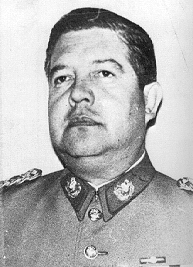
Orlando Letelier was a Chilean politician and diplomat under the administration of Chilean president, Salvador Allende. Letelier was serving as Allende’s Minister of Defense when General Augusto Pinochet launched a coup against the government, effectively gaining control of the country. As he was in a high position of government, Letelier was arrested by insurgents, only to be released a year later due to pressure on the Chilean government from international sources, specifically Secretary of State Henry Kissinger. After a short stint in Venezuela, Letelier came to Washington, D.C.
With his contacts in Washington, especially the Institute of Policy Studies, Letelier began convincing the United States and other nations to halt all relations with Pinochet’s regime, and succeed to some extent with the Kennedy Amendment in 1976, which eliminated military aid to Chile. The anti-communist government had close ties with the United States government, and the law infuriated Pinochet. Due to this, the Chilean Secret Police, DINA (National Intelligence Directorate), began plotting a way to end Letelier’s interference.
On September 21, 1976, Letelier, his assistant, Ronni Moffitt, and Ronni’s husband, Michael drove to the IPS headquarters for work. As they rounded Sheridan Circle, a bomb that had been placed under the car detonated. Both Letelier and Ronni Moffitt died from injuries inflicted by the blast; Michael, while injured, survived. The DINA had employed Michael Townley, who had been involved in another assassination plot, to carry out the job.
The deaths of Letelier and Moffitt forced the United States to act on reports of torture and murder coming out of Chile. The investigation into Townley led to the discovery of Operation Condor, an agreement between Chile and several other South American countries to help each other capture, interrogate and usually kill rebels from other countries. Townley, who was extradited to the U.S. in 1978, and the head of the DINA, Manuel Contreras, were tried and convicted for their involvement. Contreras claimed that it was the CIA, not the DINA, that ordered the hit, which has since ignited suspicions about the CIA practices of the time. No further evidence has been confirmed, so no legal action has been taken in the matter.
Back to Crime Library
|
|
|
